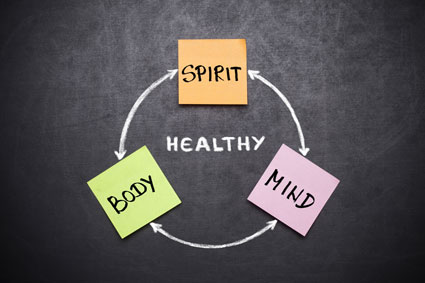For many people with social anxiety, social confidence is a rare commodity that they must acquire. Trying to gain some can be difficult, and they may find that creating even a small amount of social confidence can take a lot of time and effort. However, a little often goes a long way. Social confidence can be incredibly valuable for someone with social anxiety and having some can make a world of a difference in their life.
The role that social confidence can play in the life of a person with social anxiety and the act of creating or boosting their social confidence can be a remarkable challenge. Understanding its value often serves as motivation for those with social anxiety to create their own social confidence. This article will go into detail about the value of social confidence and how it can be used by those with social anxiety. It will also discuss how to develop it on your own and what your support system can do to help.
How Can Social Confidence Help?
The value of social confidence lies in what it can do for a person. People who are heavily outgoing and do not have social anxiety often have an abundance of social confidence. It can be the fuel that helps you get through social interaction without issues. Everyone uses their social confidence differently, and it can be one of the greatest tools in the arsenal of a person with social anxiety.
-
Act as weapon and shield--Social confidence is the strongest weapon you can have in your arsenal against social anxiety. It will also shield you from things that benefit your social anxiety and harm you. Building social confidence is a key task in overcoming social anxiety, and anything that can help you in that effort is going to be your most valuable tool. Even the smallest thing can help you, so it is important to do what you can to maintain and grow what you have.
-
Gives you a boost--Social anxiety can knock a person down in moments when they least expect it. In addition to being a tool to help you stop or slow down social anxiety from seriously affecting a person's life, it can also help them get back up when it does. The added boost that social confidence gives a person with social anxiety can have a huge, positive impact in their day. It can make a difference in the outcome of meeting a new person, hanging out with friends, or even how a routine day at work goes.
-
Gives you equal footing--Not everyone is born with built-in perfect social confidence. In many cases, social confidence is something that is learned. Most people, with and without social anxiety, learn how to develop social confidence as they grow up, and have new experiences. Those who do not have social anxiety, however, have a bit of an edge in building their social confidence over those with social anxiety. It's easier for them and they often do not need to work as hard to maintain their confidence. Actively working on creating social confidence will allow you to even out the playing field, so to speak, with your peers. Social confidence will give you access to equal footing that your social anxiety keeps you from.
What You Can Do
Social anxiety often contradicts the efforts that go into building social confidence. A person's social anxiety conflicts with what their confidence tells them and it can tear it down far faster than the person can build it up. Many of the following acts can allow you to build a suitable foundation for your social confidence to grow. Doing some of these things to build you social confidence can be repeated or become habitual throughout your life to allow for continuous growth. Even when social anxiety brings you to your lowest point, that foundation gives you the chance to pick yourself back up and start again.
-
Pace yourself--When it comes to building social confidence, the number one recommendation that you will hear is to take baby steps and pace yourself. Creating social confidence can be a complicated event and too much, too fast can deter your efforts. The process of building social confidence isn't an easy process and it will take time. Pacing yourself as you build your social confidence will prevent you from overdoing it and burning yourself out.
-
Look for inspiration--Inspiration is often the main ingredient in the building blocks of social confidence. It serves as motivator and coaches you to do your best in your efforts. For building your social confidence, inspiration is, quite possibly, the single most abundant and versatile commodity that you will encounter. It can come in forms big and small, simple and complex. You can create your own inspiration or you can go out and find it.
Most people will find sources of inspiration that are based on their interests. Hobbies, art, role models, and everyday events can be sources of inspiration. If you like music, you may find inspiration hidden in the lyrics of your favorite song. Maybe it's between the pages of a book you're reading. The actions of people you see on television, or the internet, or in your hometown can be compelling enough to inspire your social confidence to grow.
-
Know your strengths--A part of building your social confidence is finding your strengths and using them as your motivators. You want to see what you already have at your disposal for building your social confidence. It's like going to the store to get ingredients to make a cake; you are going to look at what you already have in the refrigerator and the cupboards before you leave. You may find that you have more of the ingredients than you thought and can get started right away.
Recognizing what strengths you have can be valuable in building up your social confidence. Not only can they be used to lay the foundation that your confidence will stand upon, but they can also point you in the right direction. Looking at your strengths can be a very positive experience and can give you an optimistic start on your journey to build your confidence. If at any point you feel like your confidence is slipping or that it's breaking down, you can revisit your strengths to revitalize your efforts.
-
Know your weaknesses--Everyone has their limits, and understanding what yours are can actually help you build your confidence. When a person encounters an unknown weakness that they have, it can be a blow to their social confidence. Even the most persistent person will eventually need to stop upon hitting certain walls. Repeatedly slamming into that wall will only create more problems rather than knock it down.
Knowing what your weaknesses are can allow you to pace yourself as you build your social confidence. It will keep you from overdoing it and let you avoid any problems that can arise from reaching your limit too quickly. As your social confidence grows, your weaknesses might change or you may learn how to adapt around them. You may even learn how to take your weaknesses and use them to your advantage against your social anxiety.
-
Give yourself a reminder--Sometimes, we stumble on our journey and forget what our goals are. You lose sight of what you want to accomplish or maybe you forgot what it is that's guiding you there. Reminding yourself of what you want to accomplish and what you have at your disposal to do it. It keeps you on track and focused on reaching your goals.
Social anxiety can create bumps in the road to your goals, even the ones that you have concerning building social confidence. It takes practice to build social confidence and self-esteem to the levels necessary to overcome social anxiety. Reminding yourself of what it is that you are trying to accomplish will be a motivator that will drive you to practice and build up your social confidence.
-
Seek help--Occasionally, the actions you take by yourself are not enough to build your social confidence as successfully as you want them to be. Roadblocks come up or you find that what you are doing just isn't working as you thought it would. In order to build your social confidence, you sometimes may find that you need to stop and ask for help. A part of seeking help involves knowing your weaknesses and strengths. You know what YOU can do alone, but what can someone else do for you?
There is never any shame in asking for help as you build your social confidence. It's a daunting task for some and there may be factors--such as your social anxiety--that may create complications that you cannot control. Asking for help can also give you access to other resources that can help you build your confidence.
What Others Can Do For You
Having a support system in place can often help a person with social anxiety build their social confidence. For many people with social anxiety, a healthy support system keeps their social confidence active and growing. The people you have supporting you are often those that you trust the most, and they are close enough to you to recognize when you need them.
The people closest to you in your life will often work to support and build your confidence without asking. They love you and want to see you happy, so they will do what they can to get you there. Helping you build your social confidence is one way they can help you out. The following are some of the things that they can do--either of their own accord or at your request--to support you as you build your social confidence.
-
Be there--Sometimes the simple act of being there for someone as they work towards a goal is the best thing that a person can do. The road to social confidence and overcoming social anxiety isn't easy and having someone there when it gets tough can make all the difference. Having someone who will be there for you is one of the main--if not the main--point of having a support system in the first place!
Your supporters can be there to help you build social confidence through simple acts. Call them when you hit a bump or set back. Ask for advice when you don't know what to do. Go to them when things go wrong and you need to vent your frustration. If you're supporting someone with anxiety while they build their confidence, give them a boost when they need it--even if they don't ask for it. Answer the phone when they call or text you. Help them get to the point they want to get to.
-
Inspire you--Inspiration isn't always something you need to do on your own. Remember that it comes in all forms, from all kinds of places. Your support system is one such source of inspiration. It can come from them in the form of a pep talk, a comforting note, a kind deed. Sometimes, inspiration comes out of the honesty that a friend gives you when you go to them for help.
Members of your support system will have things that inspire them in their own lives that helps them get through their problems and reach their goals. While they may not have social anxiety or need to build their social confidence, that doesn't mean that the inspiration they have in their life can't apply. The act of supporting you through your social anxiety and your task to build social confidence can be inspiring.
-
Know what you're doing--The easiest way to make sure that your support system can do their best to help you build your social confidence is by letting them know what's going on. A supporter can sometimes help add to your own efforts and give you a much need boost. Letting them know what you are doing for your social confidence can also give them ideas as to what they can do. It allows them to add to what you already have and fill in any gaps there might be.
Keeping your support system in the loop about what you are doing for your social anxiety and to build your confidence can also be a matter of safety. Not all actions that a person does to make themselves happy are good, and you might not immediately recognize that something you are doing is harmful. Sometimes, something positive can turn negative if it is in too large of a quantity or done too quickly. Actions to build your social confidence can backfire if they cause you to burn out before there are any results. By letting them know what you are doing, they can be there to serve as a voice of reason when you need it or give you necessary feedback.































